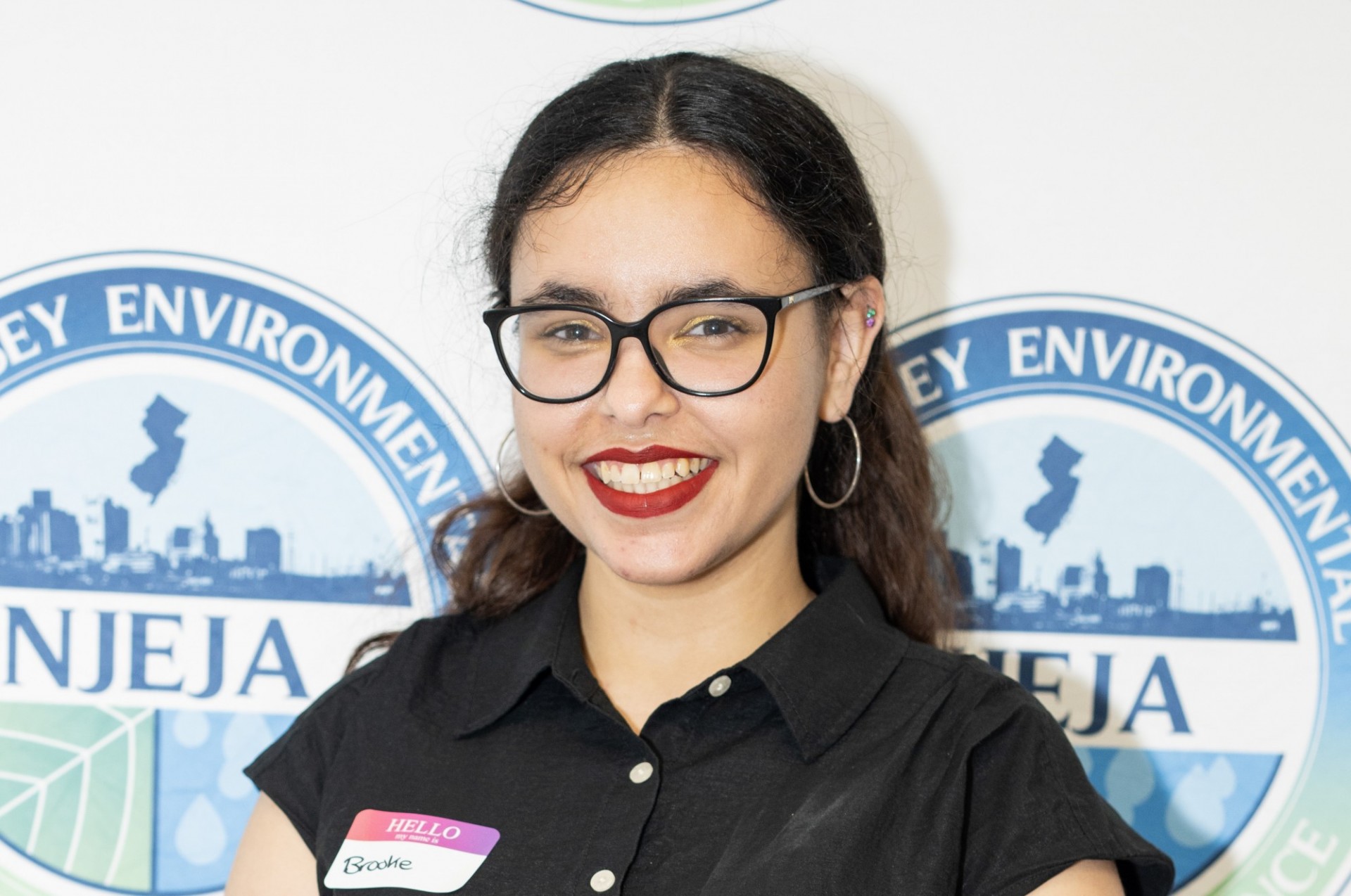Alumna Profile: Brooke Helmick
This profile is the second in a series, published by the EJCJC Network, highlighting Columbia alumni making an impact in the environmental justice space.

Brooke Helmick GSAS ‘23 has always felt a need to be involved in the advocacy space. Growing up in a low-income community of color in Southern California, Brooke witnessed firsthand the intersection of struggles that many communities face. This experience, coupled with learning about histories of oppression and violence, sparked a passion for social and environmental justice that has guided Brooke's career path.
For her undergraduate studies, Brooke went to UCLA, where she obtained a bachelor’s in gender studies. Her undergraduate thesis focused on the disproportionate impacts of climate change on women, particularly women of color in the global south. “I was thinking about the intersections of system and class and race and ability and access,” Brooke told me in our interview. While the seeds of her current role as an environmental justice advocate were present, Brooke cites her work as a policy fellow and disability rights advocate at Los Angeles’s Civil, Human Rights and Equity Department as formative to her career trajectory.
Wanting to get involved with research to advance social justice, Brooke enrolled in Columbia’s human rights studies masters program offered in coordination with Columbia’s Institute for the Study of Human Rights. Brooke told me she chose Columbia because of the strengths of the human rights program. “Columbia just made sense for me,” she told me. “The human rights program spoke to me as a person, especially this framework of doing policy and law through a lens of protecting people.” Brooke completed her masters in 2023 after writing a thesis looking at the intersections of social wellness, a term she developed, and the rise of extremism and democratic instability.
Brooke currently works for the New Jersey Environmental Justice Alliance (NJEJA), a New Jersey-based organization whose mission is to identify, prevent, and eliminate environmental injustices in low-income and communities of color. As an organization led by people of color, mainly Black and indigenous people, Brooke describes the organization’s priorities as advocating for clean energy, better air quality, equitable waste infrastructure, and increasing community engagement.
As NJEJA’s Law and Policy Manager, Brooke focuses on air quality and clean energy, working with community groups such as the Ironbound Community Corporation to lobby governmental agencies such as the EPA or the New Jersey Department of Environmental Protection.
Throughout our conversation, Brooke emphasized the importance of community members leading the charge on environmental justice reforms. Brooke told me she views herself as a bridge builder who fills the gap between the policy details and what residents need. “You can go to a community and ask what the problems are, and I guarantee you, you'll find people who know what would be best to fix it,” Brooke said. “I see my work as being the person that can make sure that the solutions that we're putting out in policy match the actual needs of the community.”
Brooke remains committed to the environmental justice movement partially because of how strongly she feels about democracy building. “I really don't think we can have a healthy and stable democracy without supporting environmental justice communities,” Brooke explained. “I see myself integrating environmental justice into any work that I do; whether that's civics or civil rights work, it will always tie back together.”
In the future, Brooke hopes to get a Ph.D. focusing on how peacebuilding and the development of social safety nets can stabilize communities and strengthen democracy. Additionally, she hopes to engage in research in a way that centers community needs instead of being extractive. Given a history of academia that’s been used to exclude and harm people of color, Brooke hopes to engage with academia in a way that is honest, equitable, and truthful.
